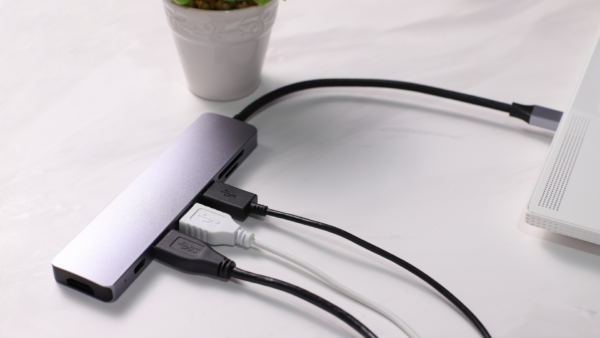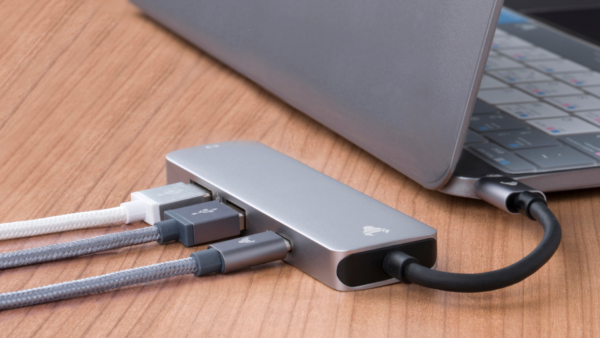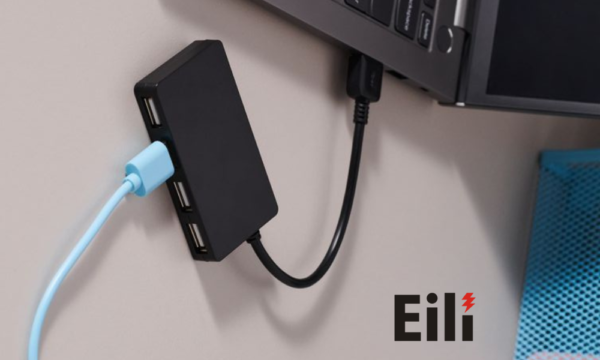USB Hubs
USB Hubs: A Quick Guide
Discover the importance of USB hubs in expanding device connectivity. Learn about different types, charging capabilities, compatibility with devices, and more to optimize your setup for work and play. Join Eili Industrial to quickly answer questions about USB hubs in this article right now.
What is a USB Hub, and Why Might You Need One?
A USB hub is a device designed to expand the number of USB ports available on your computer or laptop. This can be particularly useful if you find yourself frequently connecting multiple devices such as external hard drives, printers, USB flash drives, cameras, and other peripherals. Instead of constantly unplugging and replugging devices, a USB hub allows you to connect everything simultaneously, streamlining your setup and enhancing productivity.

Are All USB Hubs the Same?
Not at all! USB hubs come in various types, categorized primarily by their USB version. The most common versions include:
- USB 2.0: Offers a maximum data transfer rate of 480 Mbps. Suitable for low-power devices like keyboards, mice, and older peripherals.
- USB 3.0: Provides up to 5 Gbps transfer speeds, making it ideal for external hard drives and high-speed devices.
- USB 3.1: Further increases speeds to 10 Gbps, with additional improvements in power delivery.
- USB 3.2: Can offer speeds up to 20 Gbps with specific configurations.
Higher version numbers indicate faster data transfer capabilities and improved power management, while they remain backward compatible with older devices.
How Do I Choose the Right USB Hub Version?
The choice depends on the devices you intend to connect:
- If you’re using modern devices that require higher transfer speeds, such as SSDs or video capture devices, opt for a USB 3.x hub to leverage faster data rates.
- For legacy devices that don’t demand high speeds, a USB 2.0 hub may suffice.
- If you plan to mix devices, a USB 3.x hub is a versatile choice, as it can accommodate both newer and older devices.
Can I Use a USB Hub for Charging Devices?
Yes, many USB hubs feature dedicated charging ports. These ports often provide higher power outputs (typically 2.1A or more) compared to standard data ports, enabling faster charging for devices like smartphones, tablets, and other gadgets. Look for hubs that explicitly state their charging capabilities, especially if you frequently charge multiple devices.
Are USB Hubs Compatible with All Computers?
Most USB hubs are universally compatible with computers that have USB ports, including systems running Windows, macOS, and Linux. Additionally, some gaming consoles and smart TVs can also recognize USB hubs, allowing for expanded connectivity. Just ensure that the hub’s interface matches the available port on your computer—whether it’s USB-A or USB-C.
How Many Devices Can I Connect to a USB Hub?
The number of devices you can connect largely depends on the hub’s design and power specifications. Some hubs offer four ports, while others can have 10 or more. Be mindful of the power requirements; connecting several high-powered devices (like external hard drives) may necessitate a powered hub, which includes an external power source to ensure that all connected devices receive adequate power.
Can I Connect Peripherals Like Keyboards and Mice?
Absolutely! USB hubs are highly effective for connecting various peripherals, including keyboards, mice, webcams, and more. This flexibility makes it easy to manage multiple devices without cluttering your workspace with numerous cables running directly to your computer.
Can I Use a USB Hub with My Gaming Console?
Yes, many gaming consoles support USB hubs, allowing you to connect multiple controllers, external storage, or other USB devices. However, compatibility varies by console, so it’s essential to consult the console’s manual or support page for specific guidelines.
Are There USB Hubs with Extra Features?
Indeed! Some USB hubs come with additional features such as:
- LED lighting: Aesthetic enhancements that can add a modern touch to your setup.
- Built-in card readers: For easy access to SD or microSD cards, perfect for photographers or content creators needing quick file transfers.
- Data transfer capabilities: Some hubs offer the ability to transfer data at high speeds while simultaneously charging devices.
Can I Charge Devices When My Computer is Off?
This capability depends on the hub’s design. Powered USB hubs can charge devices while the computer is off if they’re connected to an external power source. However, unpowered hubs typically won’t charge devices in this state since they rely on the host computer for power.

Can I Use a USB Hub with My Smartphone or Tablet?
If your smartphone or tablet supports USB On-The-Go (OTG), you can use an OTG adapter to connect a USB hub. This allows you to attach USB drives, keyboards, or mice directly to your mobile device, facilitating file transfers or enhancing productivity.
Does a USB Hub Improve My Computer’s Performance?
While a USB hub won’t enhance your computer’s processing power or speed, it significantly improves connectivity and convenience. It allows you to manage multiple devices more effectively, reducing the hassle of unplugging and replugging devices.
Can I Connect to a Network Using a USB Hub?
No, USB hubs are strictly for expanding USB connectivity and do not facilitate network connections. To connect your computer to a network, you’ll need an Ethernet port or a WiFi adapter.
Can I Connect Gaming Controllers to a USB Hub?
Yes, if your gaming console supports USB hubs, you can connect multiple controllers simultaneously, enhancing your local multiplayer gaming experience.
Can I Connect High-Power Devices Like External Hard Drives?
Yes, a powered USB hub is particularly well-suited for high-power devices like external hard drives, as it provides the necessary power without risking underperformance or disconnection issues.
Can I Use a USB Hub to Connect Multiple Monitors?
No, connecting multiple monitors requires specific video interfaces, such as HDMI, DisplayPort, or VGA. USB hubs do not have the bandwidth to transmit video signals.
Can I Charge Wireless Earbuds or Smartwatches?
Absolutely! You can use a USB hub to charge small devices like wireless earbuds and smartwatches, provided the hub can deliver sufficient power.
Can I Use a USB Hub for Audio Devices?
Yes, USB hubs work well with audio devices, including microphones, headsets, and speakers. Many USB audio devices are plug-and-play and don’t require additional drivers for setup.
Can a USB Hub Charge My Smartphone Faster than Its Original Charger?
It depends on the specifications. If the hub’s charging ports provide higher amperage than the original charger, it could charge your smartphone faster. However, ensure the hub is of good quality to avoid underperformance.
Does a USB Hub Interfere with Wireless Devices Like WiFi?
Generally, USB hubs do not interfere with WiFi or other wireless devices. USB and WiFi operate on different frequencies, minimizing the likelihood of interference.
Can I Transfer Files from My Smartphone to a USB Drive Using a Hub?
If your smartphone supports OTG functionality, you can connect a USB hub with an OTG adapter to transfer files directly between your smartphone and a USB drive.

Can I Connect an External Graphics Card Through a USB Hub?
No, external graphics cards require specialized connections, such as Thunderbolt 3 or 4. Standard USB hubs lack the necessary bandwidth to support high-performance graphics cards.
Can I Connect a Printer to My Tablet Using a USB Hub?
Yes, if your tablet supports USB OTG, you can connect a printer via a USB hub to print directly from your tablet. Ensure your tablet’s operating system has the appropriate printer drivers installed for compatibility.
In summary, USB hubs are essential devices that expand the connectivity of your computer or tablet, allowing you to connect multiple peripherals, charge devices, and streamline your setup. By understanding the various types of USB hubs available, their compatibility with different devices, and their features, you can choose the right hub to enhance your digital experience, whether for work, gaming, or general use.
Related Articles:
- Everything You Need to Know About Wholesale USB Hubs for Retailers
- The Ultimate Guide to USB Hubs: Expanding Your Connectivity
- The Ultimate Guide to Sourcing Wholesale USB Hubs for B2B
Connect with Eili:


